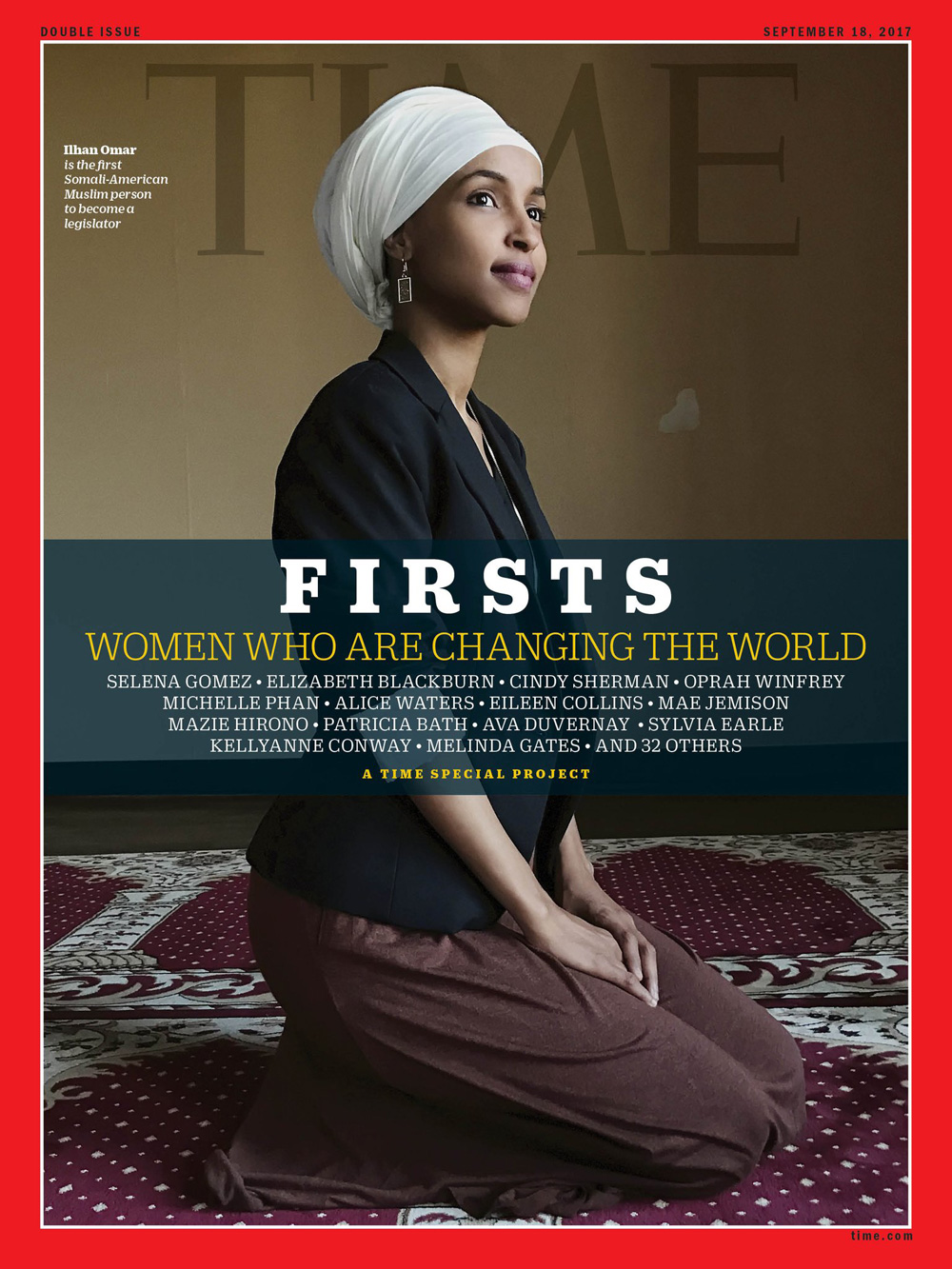
Ilhan Omar
Ilhan Omar, the first Somali-American to be voted to the state legislature in the United States has been featured on the cover of TIME magazine.
The cover was part of a multimedia project called Firsts, honouring 45 women who have broken glass ceilings in their respective fields and are changing the world.

“Our goal with Firsts is for every woman and girl to find someone whose presence in the highest reaches of success says to her that it is safe to climb, come on up, the view is spectacular,” noted TIME in its introduction to the project.
The former refugee is one of the 12 exceptional women to be given their own cover - including Hillary Rodham Clinton, Oprah Winfrey and Selena Gomez - making her the first Muslim woman to be featured on the cover of the magazine.
Omar’s rise on the American political scene was well documented and her election to the Minnesota house of representatives last year was celebrated as a step forward for Muslim women and the Muslim-American community as a whole.

However, Omar has been vocal about the difficulties she has faced as a Muslim women in politics. “Everybody wanted to make that an issue,” she told TIME.“To the Muslim and Somali communities, my gender was a problem because politics is supposed to be a man’s role.”
She has also called out the double standards that women face when they are running for office, which men never have to deal with.
“Then there was the typical stuff that women candidates deal with—as a mother, how irresponsible I must be to want to run and devote as much time out of the home,” she said. “No one ever asks the male candidates who are also fathers how they expect to balance family life. Gender was a big thing.”
Omar also spoke to TIME about the realities of being a black, Muslim refugee in the US, especially with racial and religious tensions at an all time high.

“When you’re growing up in an environment where your faith and your race are not topics of conversation, it’s really hard to come to an environment where all of that means something,” she explained. “Being black in the U.S. means something. There’s a history. Being an immigrant, a refugee, Muslim—all of those things represent an otherness that is not typical or easily confined into the social fabric of this country.”
But regardless of the social and political situation, Omar knew that her candidature would be a game changer for what Muslim women felt they could achieve in the country.
“I ended up pushing all of the negative things aside because I kept thinking, regardless of whether we win or lose, this will shift the narrative about what is possible.”

















